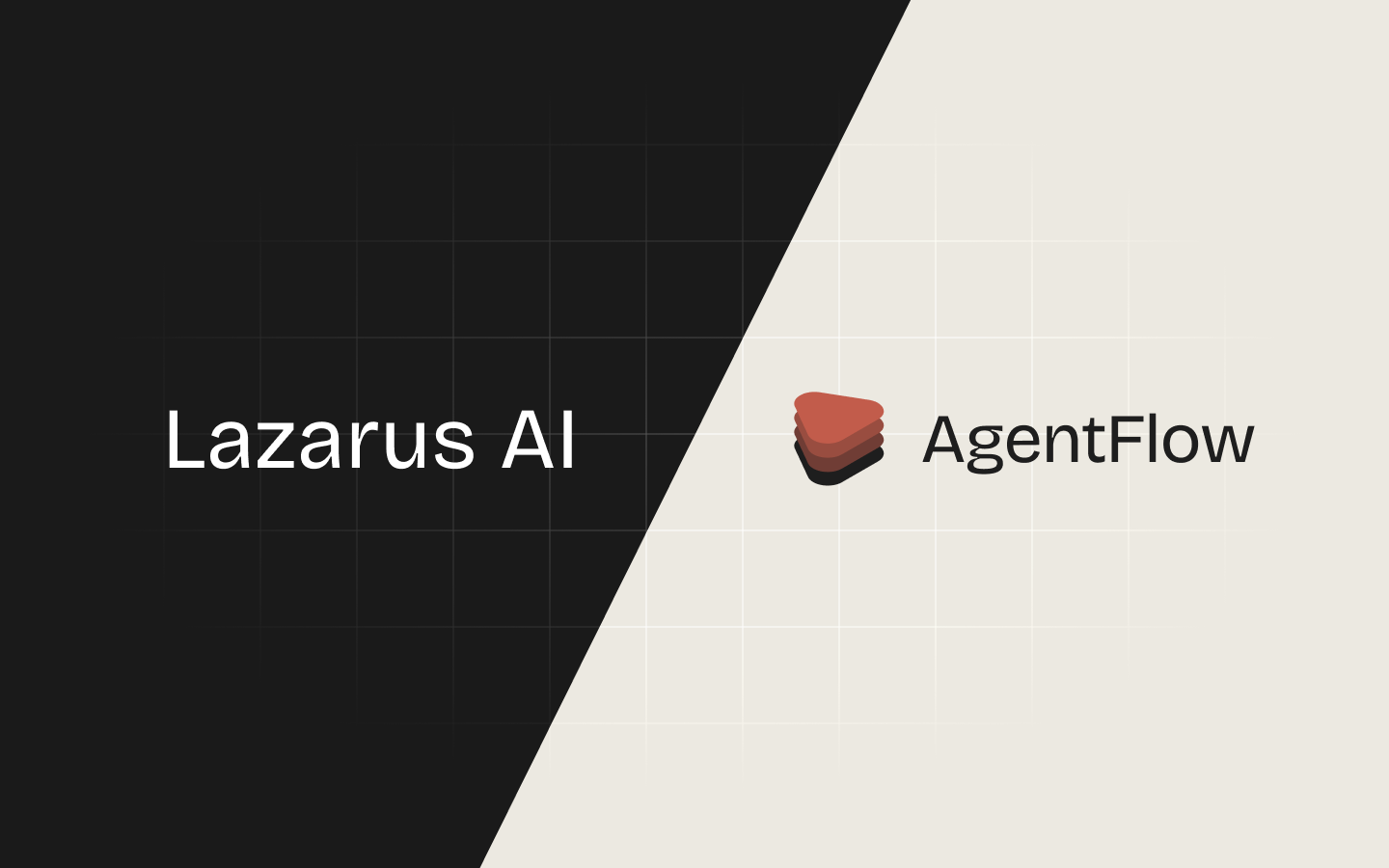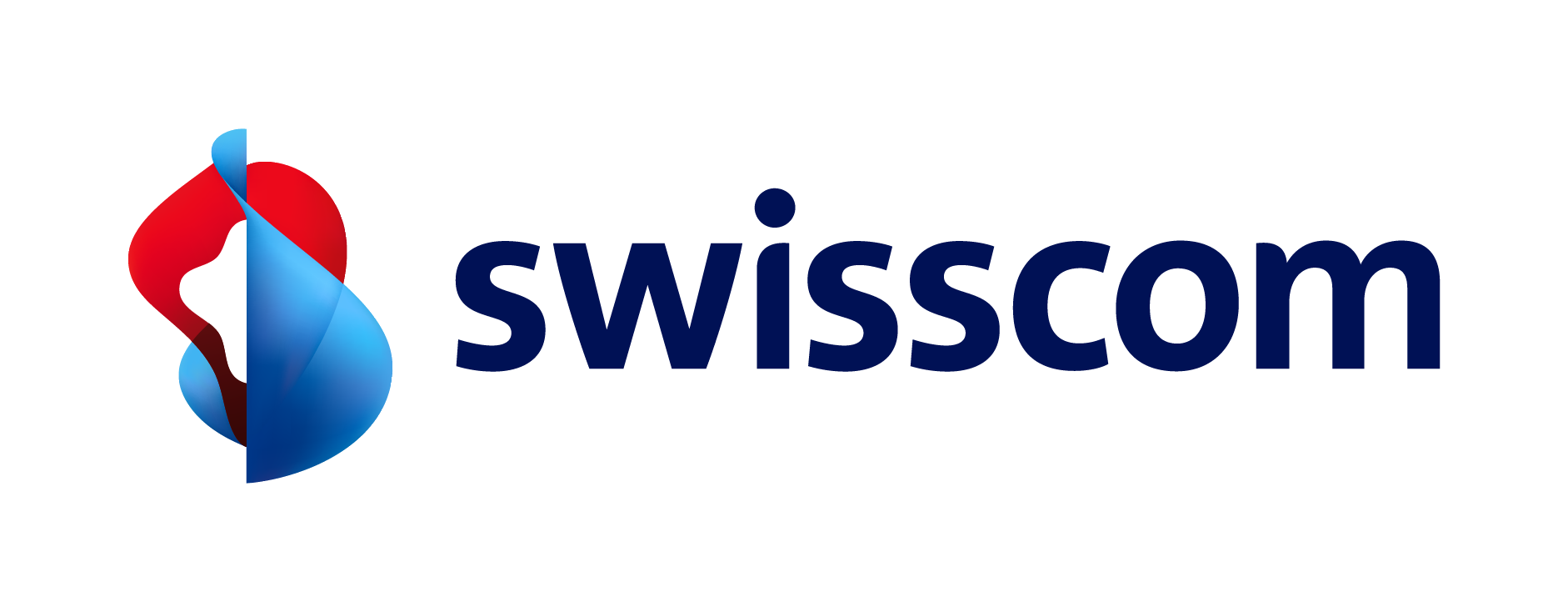AgentFlow vs. Lazarus AI: A Detailed Comparison
For regulated industries like finance and insurance, AgentFlow provides secure, transparent, and governance-ready automation. Built for industry-specific workflows, it ensures faster deployment and regulator-grade compliance. Lazarus AI, while innovative as a general-purpose agentic AI solution, lacks the vertical depth and compliance features needed to serve financial services at scale.

Why Companies Are Choosing AgentFlow
Industry focus
AgentFlow is purpose-built for financial services and insurance, with pre-built workflows for underwriting, claims, and compliance. Lazarus AI is a horizontal platform, requiring heavy customization for industry-specific needs.
.png)
Strong governance
AgentFlow includes built-in audit trails, role-based access controls, and confidence thresholds aligned with financial regulations. Lazarus AI offers explainability but does not provide regulator-grade governance out of the box.
.png)
Deployment speed
With a buy-to-build model, AgentFlow can be deployed in 90 days or less, supported by Forward Deployed Engineers. Lazarus AI implementations typically require longer timelines due to customization overhead.
.png)
Security and sovereignty
AgentFlow offers SOC 2 Type II certification, private VPC hosting, and customer data control. Lazarus AI relies mainly on SaaS deployments, which may pose sovereignty and compliance challenges.
.png)
AgentFlow vs. Lazarus AI
Feature
AgentFlow
Lazarus AI
Expertise
Built for finance and insurance
Horizontal, general-purpose AI
Governance
Embedded audit trails, compliance features
Requires external tools for full compliance
Deployment
Deployable in <90 days with FDE support
Longer, customization-heavy deploment
Security
SOC 2 Type II, VPC/on-prem, data ownership
SaaS-first model with less data control
Adaptability
SME-driven workflows with feedback loops
More engineering-dependent for updates
Transparency
Confidence scores, decision traceability
Explainability, but not regulator-ready
AgentFlow vs. Lazarus AI: Deeper Analysis
.svg)
Expertise
Lazarus AI, by contrast, is a horizontal AI platform. While powerful in scope, it is not tailored to regulated industries. Financial institutions using Lazarus AI must invest significant time and resources to configure workflows that reflect industry-specific rules and compliance standards, delaying ROI and introducing risks.
.svg)
Governance
Lazarus AI offers governance features such as explainability, but its controls are more generic. Enterprises often need to build additional layers of oversight to satisfy regulator demands. This adds both cost and operational burden, while also increasing the chance of gaps in governance.
.svg)
Deployment
Lazarus AI deployments, however, generally take longer. Because the platform is not vertically aligned, institutions must customize workflows extensively before going live. This prolongs deployment timelines and increases professional services costs.

Security
Lazarus AI primarily operates in a SaaS-first model. While convenient for many industries, this approach often fails to meet the strict security and data sovereignty demands of financial services and insurance companies.
.svg)
Adaptability
Lazarus AI, on the other hand, depends more on technical teams for updates and customization. This slows adaptation to new regulations and market conditions, limiting agility in fast-changing environments.
.svg)
Transparency
Lazarus AI provides explainability, but its outputs are not aligned with the regulator-grade standards demanded by financial institutions. For companies under strict audit requirements, this gap creates risk.
“Multimodal delivered transformative results for our banking outsourcing team in just 90 days. By automating the manual processing of over 300 daily payment orders and forms, we cut turnaround time by 75%, reduced staffing needs by 75%, and more than tripled our processing capacity—all without changing our existing systems. The accuracy, flexibility, and speed of iteration were impressive. Just as important, working with the Multimodal team was collaborative and seamless—they adapted quickly to our needs and delivered results week after week. Their agentic AI platform not only exceeded our goals, it redefined what we thought was possible.”

FAQ
Yes, particularly for financial services and insurance companies. AgentFlow provides domain-specific expertise, built-in governance, and secure deployment options, while Lazarus AI is a horizontal platform requiring heavy customization.
AgentFlow can be deployed in under 90 days with workflows tailored to regulated industries. Lazarus AI typically takes longer due to customization requirements.
Yes. AgentFlow supports VPC and on-prem deployments with SOC 2 Type II certification. Lazarus AI primarily operates via SaaS.
Business users such as underwriters and claims managers can configure and refine workflows directly, reducing reliance on engineering. Lazarus AI requires more technical involvement.
Yes. AgentFlow is API-first, making it easy to integrate with existing enterprise systems, databases, and compliance workflows.
.svg)
.svg)
.svg)
.svg)